For those of you following along on this grand adventure, you will recollect that we left off with my having landed safely in Bangor, gotten a bit used to the lay of the land, and settled into a routine of breakfast, followed by errands, followed by client work.
On Thursday and Friday, I was able to take some time off of client work and explore Bangor. For example, while out for a walk on Thursday morning, I found this monument:
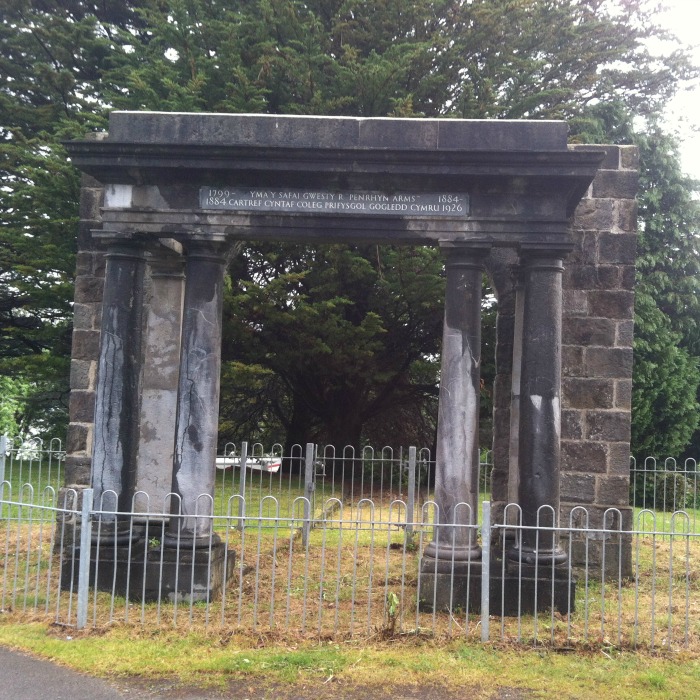
Welsh Monument on a hill overlooking the A5 and Port Penryhn, Bangor
The monument was just up the hill from this vet clinic, which is so quintessentially British that I just had to take a picture. (Does it remind anyone else of Doc Martin?)
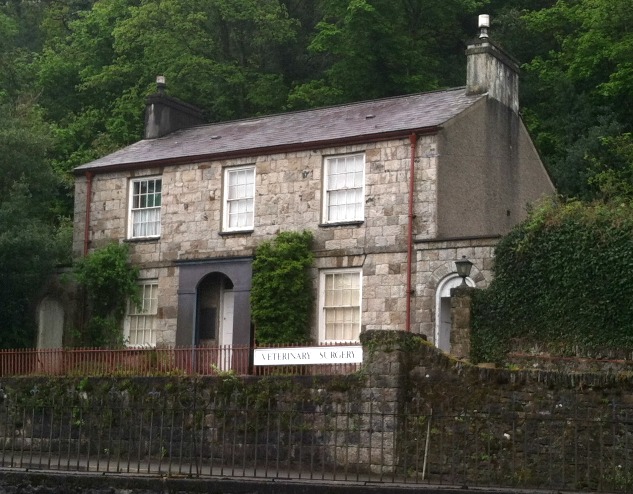
Veterinary Surgery at the end of High Street, on the outskirts of Bangor
Continuing on my Thursday morning exploratory walk, I turned up the hill behind the Victorian Pier, passing these houses as I did so.
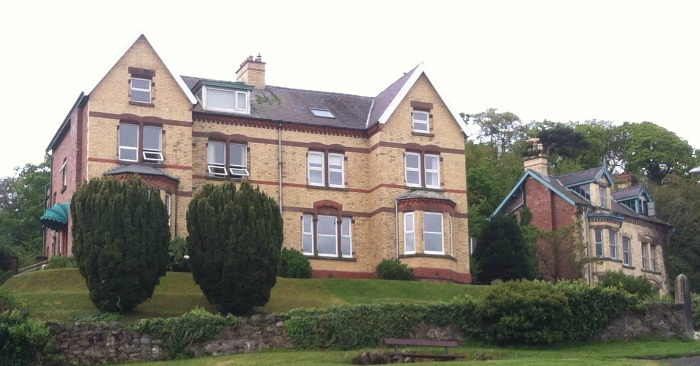
Houses overlooking Victorian Pier, Bangor Wales
As you past these houses on the left, the road narrows to one lane, with a half-lane on the right side for parking or pulling over? Although I think the road may be one way – I never did see any cars coming down the hill.
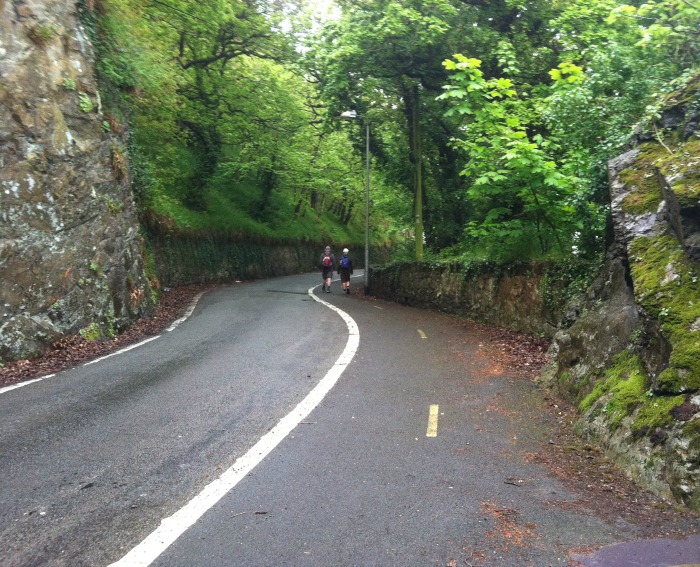
Road leading up and around the hill behind the Victorian Pier (and behind my B & B)
After about 10 minutes of walking, I came across this mysterious path. As it led downhill, I didn’t take it (downhill meaning “towards the strait.”)
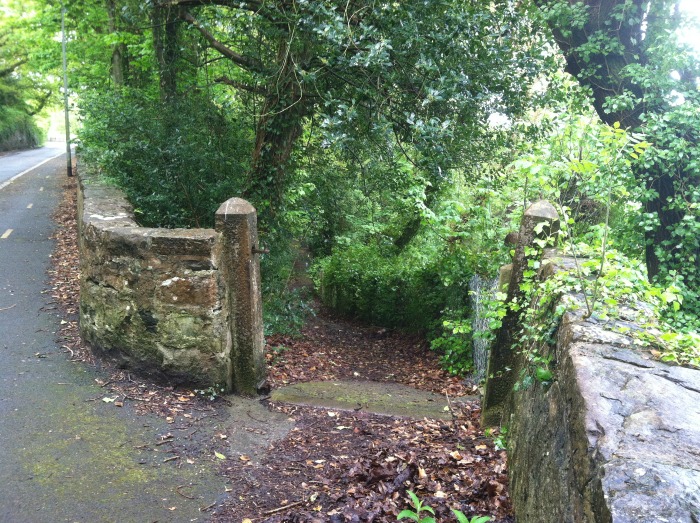
Mysterious path leading away from road and down towards the Menai Strait
But I did find this nubbin of a tree (I think?) growing out of the stone wall.
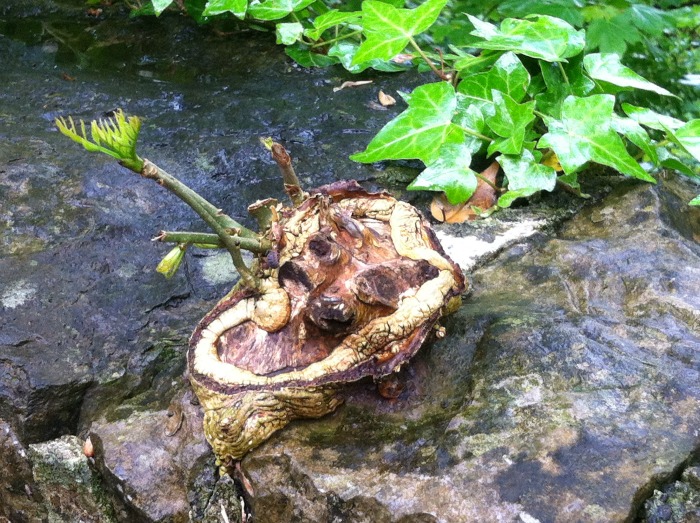
Tree nubbin growing out of a stone wall
A few minutes later, I passed this inviting arch:
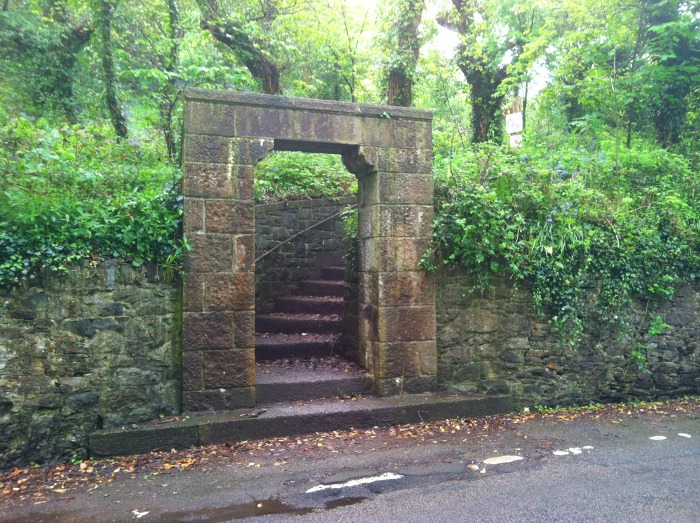
Inviting arch that invites pedestrians to abandon the main road in favor of – what, exactly?
But since it wasn’t marked with anything other than a walker and an arrow, I decided to walk down the road a few more steps. I saw this across the valley:
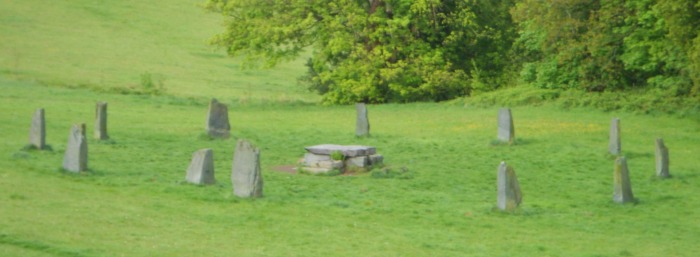
Gorsedd stones erected as part of the 1971 Eisteddfod
The standing stones were erected by the National Eisteddfod, which is held every year in either North or South Wales. And every year, if the host city does not already have its own standing stones, the Eisteddfod leaves a circle of standing stones, with a speaker’s stone in the middle, as a token of their presence. The last Eisteddfod held in Bangor proper was in 1971, which is when these stones were erected.
The National Eisteddfod is a huge competition, held all in Welsh, where competitors compete for prizes in all kinds of categories, including songs, poetry, and prose. Traditionally it’s held every August, so I unfortunately won’t be here long enough to witness it. I’m told that many Americans come, though, and as far as I can tell, it’s as close to a Renaissance Faire as the Welsh ever get.
Still, the stones themselves weren’t very interesting, so I decided to heed the call of the unknown and explore the pedestrian arch. It led me up a hillside . . .
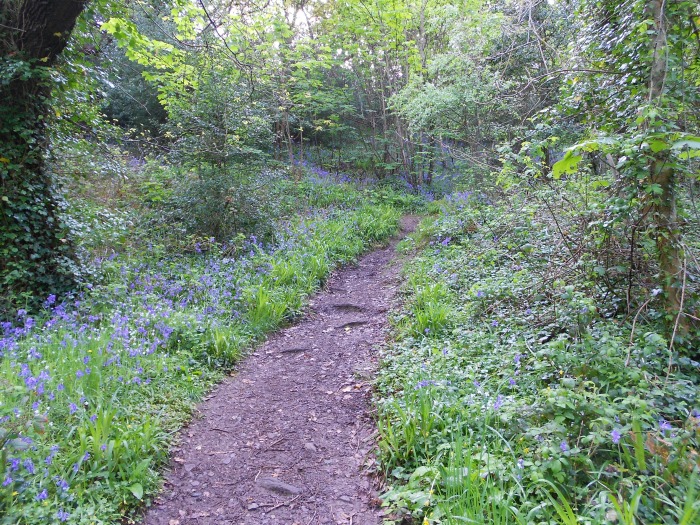
Taking the mysterious pedestrian path up the muddy hillside
. . . and across the open green spaces . . .
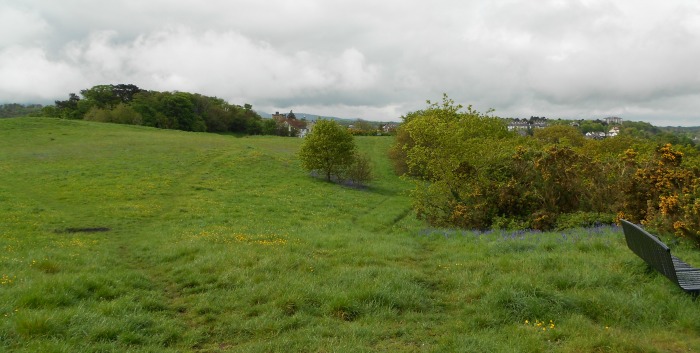
A “more crushed here than over there” grassy path led me through the meadow
. . . to stand on top of the hill that overlooks the town of Bangor. To the west, you can see down the strait to the suspension bridge.
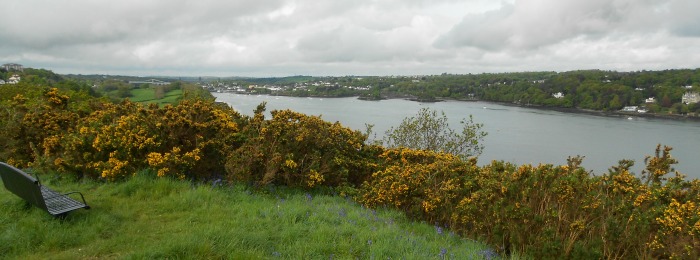
View of the Menai Strait and the Suspension Bridge to the West
And to the east, you can see the strait and the Venetian Pier.
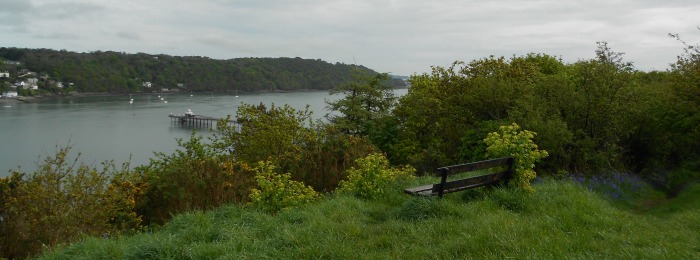
View of the Menai Strait and the Venetian Pier in Bangor to the East
On my way down from this lovely hilltop, I met a nice man with a beautiful black and white border collie. He’s the one who told me about the Gorsedd stones and the Eisteddfod, and also that many of the local dog walkers bring their dogs up to the hilltop meadows to run. Apparently there is also an old motte-and-bailey castle in the fields beyond the standing stones. I have not made it back up there to check yet, but I have it in mind for a forthcoming afternoon adventure.
I also went exploring on Friday, but in a different part of Bangor. Keep an eye out for that adventure in my next post!
Coming Up Next: getting acquainted with the Wales Coastal Trail.
Until next time,
~ Felicity

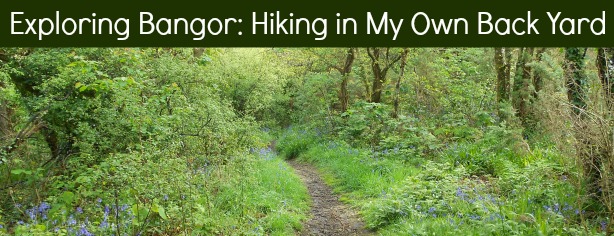









Very nice commentary and excellent photos. Looks like a nice place to base out of for a while! I enjoy reading your posts…keep up the good work.